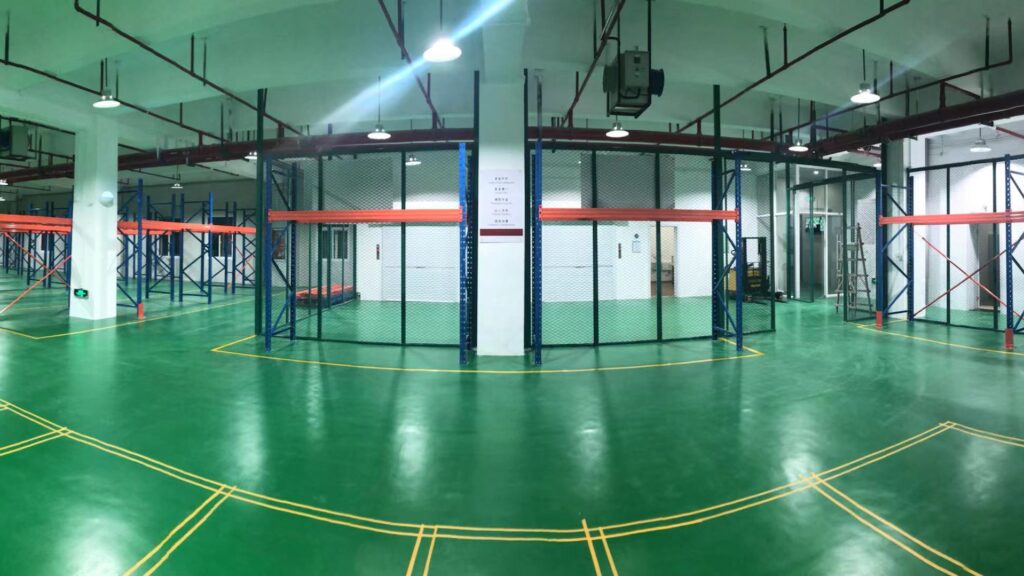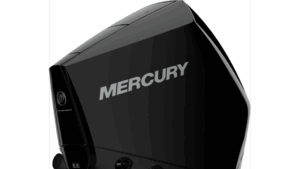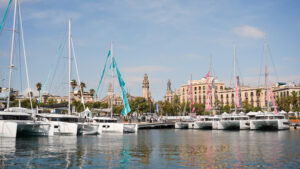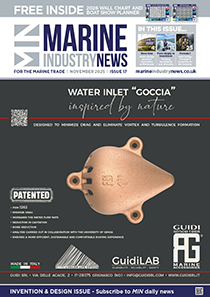Shakespeare International: regional strategies and expanding Asian warehousing
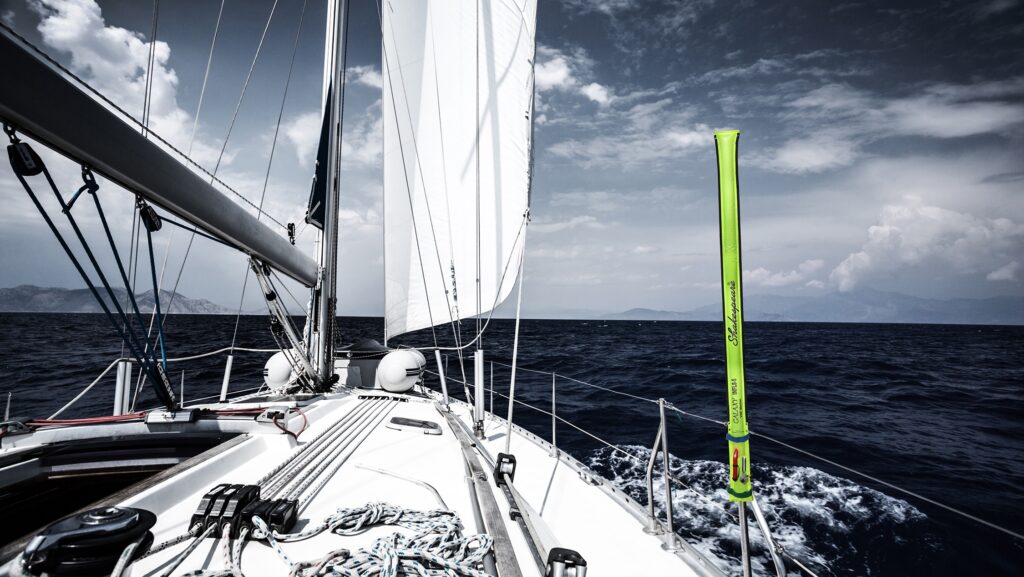
Dave Manasseh, international sales manager for Shakespeare International, talks regional strategies, tariffs, production optimisation and breaking into established markets.
Antenna design and material solutions company Shakespeare International has embarked on a significant geographic expansion strategy of late – tackling mature markets and vying with established competition. The company has also established a presence in entirely new-to-marine markets. Both come with challenges, says Dave Manasseh, international sales manager for Shakespeare antennas & industrial products, who sat down with MIN in summer 2025 to discuss how the company has grown.
“With our HQ in America, over time we have identified our key marine regions outside of the US and created tailored strategies for each. There cannot be a one-size-fits-all approach,” says Manasseh. “It’s been about learning the unique needs of each market and adapting accordingly.”
Breaking into Europe
When Shakespeare began actively expanding in Europe more than a decade ago, the company was entering a well-established market where companies had long-standing brand loyalties.
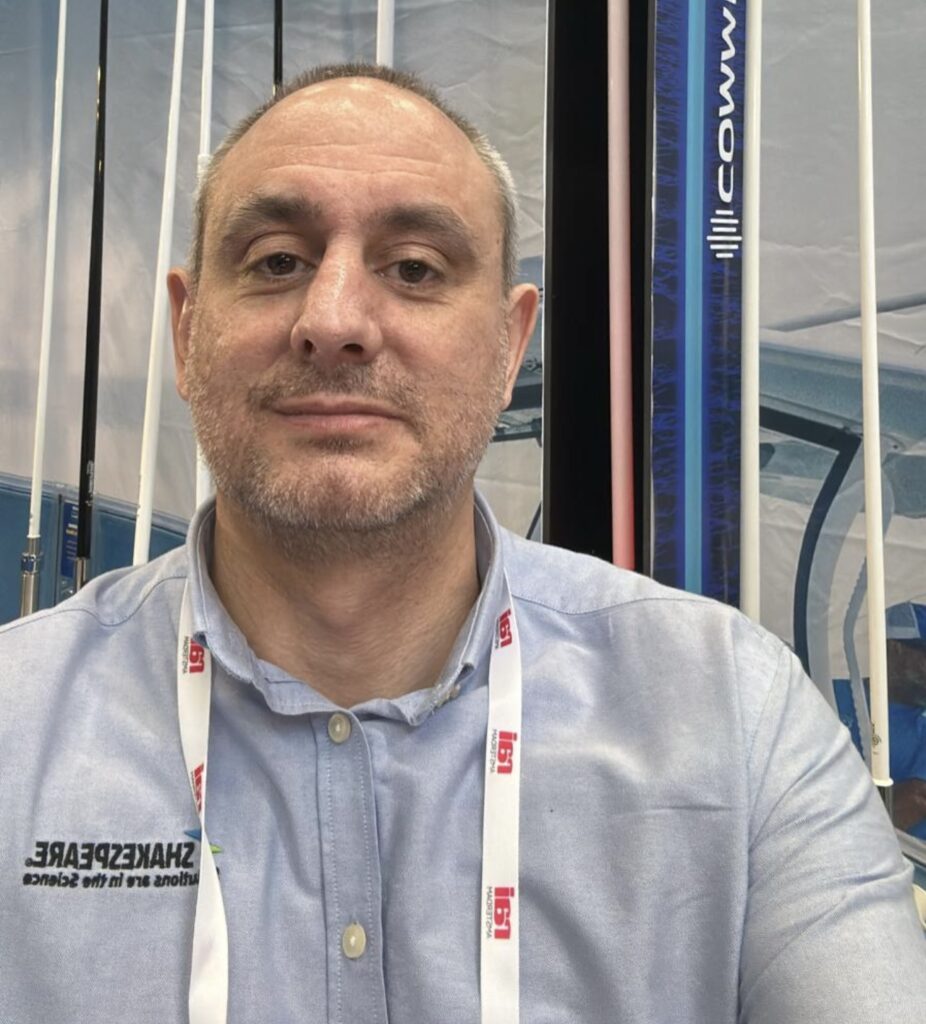
Manasseh (left) says: “We only began selling into mainland Europe in the early 2010s, by which point many major distributors had already cemented relationships with other antenna brands. Convincing them of the value Shakespeare adds to their portfolio takes time, but we’re making strong progress.
“Our initial strategy was clear: to target countries with little to no existing sales and build a distribution network that covered the continent,” explains Manasseh.
“Today, 90 per cent of European countries now stock Shakespeare products.
“We have taken steps to consolidate some of our smaller distribution partners into larger accounts – which has proven very effective. At the same time, we made it known we were actively seeking new distribution partners, which brought in fresh and proactive companies that wanted to work with us. Denmark is a great example, where we’ve seen real success with Scan Marine.”
As the company’s presence in Europe has matured, so has its strategy. “We’ve evolved by changing partners when necessary, to enable further growth. On average, we add two to three new partners across Europe each year and our sales have grown year-on-year for the past eight years – excluding a brief dip during covid.”
Like most sectors of the marine industry, Shakespeare has been weathering the slower current market. He says: “2024 was a tough year in Europe. The biggest difference was that I was ringing people instead of them ringing me. The economy in the UK and Europe has been difficult. No one wants to spend cash into keeping stock. It’s been more of an ‘in demand’ and less of a stock setup. That said, we finished the year above the 2023 overall, but it was a hard graft to get there.”
Expanding into Asia
In 2017, Manasseh says the company had no regular business in Asia – just occasional orders without consistency or volume. That changed when the company began collaborating with major electronics and distribution partners.
“In order to position us a real player, we didn’t try to compete on price with local manufacturers, we focused on Shakespeare’s durability and quality – and this has positioned us above most other brands in the region,” he explains.
A major milestone came in 2023/24 when Shakespeare launched a dedicated warehouse in Asia – making it the only antenna company with warehousing in the USA, Europe and Asia.
“This new hub has significantly expanded our reach into eastern Asia, and by 2024, Asia had become a bigger market for us than mainland Europe,” he says.
In December 2024, the company reported its most successful year in Asia to date, with a 20 per cent increase in regional growth.
“The hub has also opened doors to the leisure market in China. In 2025, we received our largest-ever order from China, which was a major step forward for our brand.”
The strategy, which mirrors the company’s successful models in the USA and Europe, has been a transformative move for Shakespeare.
“In Asia, our approach is more selective – we typically add just one new partner per year to ensure alignment and impact. We’re also seeing positive momentum in the Middle East, which has historically been more sporadic. Leveraging the Asia hub is proving to be valuable there as well.”
Trade tariffs tactic: stay nimble
“This year [2025] started strongly and the conversations we were having were positive. However, the tides in Europe are constantly changing and there seems to be a nervousness around spending money on inventory or restocking as quickly as in previous years. I’m still confident that this year will be a stronger and more affluent year than 2024, but it’s not going to be an easy year – across all territories,” he says.
The company’s multiple production hubs have proved helpful in the wake of Trump’s trade policies.
“For Shakespeare Marine, the current trade tariff situation fortunately has not affected our business outside of the USA,” adds Manasseh. “The way we have structured our business, with strong distribution networks and multiple factory locations around the world, means we are lean and can flex depending on the needs of our customers.
“Being this agile is a real benefit to our partners and means we can utilise our various locations and warehouses globally, getting the most suitable and efficient service for our partners, including costs. This is evidenced by an order for 1,000 aerials, which were manufactured in the UK and shipped to USA to avoid Asia import tariffs.”
“So far, we have not experienced any negative impact in business outside of the USA, however, we will continue to monitor the market and remain agile for the benefit of our customers,” he adds.
Transferring stock between warehouses could become more expensive depending on Trump’s tariff trajectory – a factor being planned around at Shakespeare Marine. “We are very conscious of this happening and there continues to be a level of uncertainty around this,” he says.
“We are the only antenna manufacturer with a warehouse and manufacturing facilities in UK, USA and Asia, which gives our business the flexibility to serve our customers in the most dynamic ways – one of which is supplying all local markets with local supply. There are considerable admin requirements if this happens which we would need to navigate, however serving our clients and getting product to them is not a problem and will not impact the client.”
Australasia: a game of logistics
The Australasian market provides unique challenges and opportunities. Manasseh says a trip he took to the region in 2023 was “eye-opening”. “It’s a price-sensitive market and local antenna brands dominate the retail space,” he adds.
Selling to the other side of the world naturally presents logistical obstacles – especially with shipping costs making products less competitive. But the Asia hub has helped ease this cost burden.
“We’ve leveraged our Asia hub to reduce shipping costs and improve accessibility. More importantly, we’ve shifted toward a commercial distribution strategy. Partnering with ICOM Australia has been an important move – it operates in the high-end segment where Shakespeare’s premium quality matters most. This has helped us begin to rebuild sales in the region, which declined during covid as local manufacturers took back the market.”
What’s next?
Manasseh says the successful growth of the business has been rooted in market understanding and assessing the demands of each region accordingly.
One of the biggest challenges has been educating developed markets. “Shakespeare takes pride in the quality of its antennas, but many regions have been conditioned to believe that cheaper is better,” says Manasseh.
“Visually, a white stick antenna may look the same across brands – but as we know, performance tells a different story. Changing that perception, both within the industry and among end consumers, is still an ongoing challenge.”
When it comes to product launches, regional expansions and partnerships, Shakespeare will continue to adopt region-specific strategies for growth.
This is not the market for a one-size-fits-all approach, Manasseh reaffirms – particularly in the current geopolitical climate where the ability to flex and adapt quickly is proving all important.


